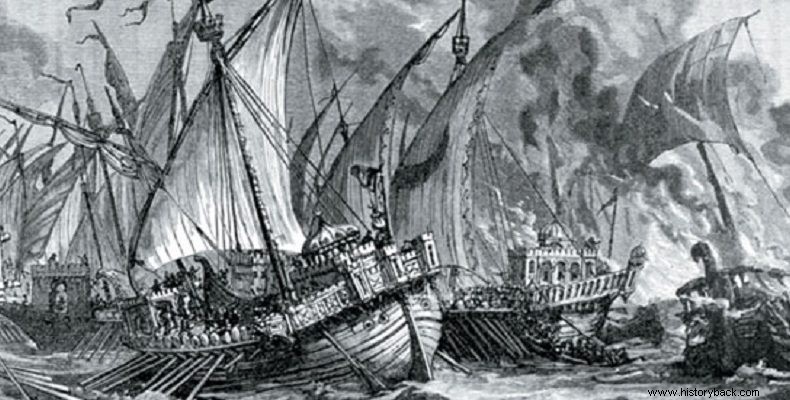
In 550 AD the Byzantium-Ostrogoth war continued bloody in Italy. After the first successes, the Germans regained ground under the leadership of their worthy king Totila, who limited the Byzantines to certain coastal positions, even invading Sicily.
The German king even proceeded to form a fleet of 400 ships in order to challenge Byzantine sovereignty by sea and to prohibit the sending of Byzantine troops to Italy by sea.
At the same time, Totilas decided to besiege Agona, an important naval base of the Byzantines. His army surrounded the city while a naval squadron of 47 Gothic ships shut her off from the sea. Another 300 Gothic ships raided the Ionian Islands and the coast of Epirus.
Faced with this situation, the governor of Ravenna, Valerianos, ordered general John, who was in Dalmatia, to rush to reinforce the Agona garrison. John indeed hastened with 38 ships to the besieged city. During the voyage his squadron was joined by 12 ships under Valerian.
Annihilation at sea
The Byzantine fate was realized by the Gothic which participated in the blockade of Agona. The Gothic admirals Indulphus and Gibalus decided to attack immediately with the 47 ships at their disposal. The two rivals met north of Agona, off the coastal town of Senigalia (then Sena Gallica).
The Goths attacked impetuously but disorganized as both admirals and crews did not have a very good relationship with the liquid element.Soon several Gothic ships broke the formation and they began to sail autonomously against the Byzantine ships that were sailing in perfect formation.
Individual Gothic ships were an easy target for the Byzantines and were soon sunk. The Gothic admirals then ordered their ships to re-form. But due to the inexperience of the crews, the Gothic ships began to collide with each other. In the midst of such confusion, the experienced Byzantines arrived and began to overpower and set fire to the German ships one after the other.
Indulphus with 11 ships managed to escape but reaching the coast near Agona, disembarked with his men and burned his ships. That's how much he was demoralized. But Gibal was captured along with many men from the 36 Gothic ships that sank . The Byzantines did not lose any ships and arrived in Agona victorious.
The news of the defeat also caused panic in the Gothic army besieging the city, which lifted the siege and fled badly. The victory of the Byzantines changed the course of the war. This was followed by the great counterattack under Narses and the defeat of the Goths.
